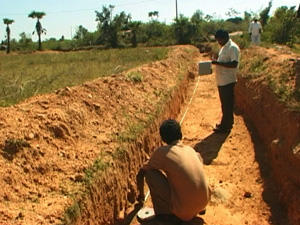We can demand accountability and transparency with these tools
An audit by the people, for the people Back

As a term, ‘social audit’ was used as far back as the 1950s. It is a process by which details of the utilization of resources (financial and non-financial) by public authorities for development initiatives are shared with the people. This is often done at public hearings or jan sunwais, and through public platforms like gram sabhas in rural areas and mohalla sabhas in urban areas.
Why are social audits needed?
Social audits allow people to force public authorities to provide them an opportunity to review official records and determine whether the government’s expenditure matches the money spent on the ground.
The concept of a social audit has become very important after the enactment of 73rd and 74th Constitutional Amendments as well as the Right to Information Act and the Right to Service Delivery Acts passed by some states. These Acts, in their respective forms across different states, have an in-built mechanism for social audits that can help us to achieve transparency and accountability, contain corruption, tackle societal injustice and improve governance.
When and for what can a social audit be conducted?
A social audit can be done before a public project or scheme is initiated, while it is in progress or after it is complete.
It can be conducted to:
- introduce new schemes to help citizens.
- improve procedures or processes adopted by the civic administration.
- monitor work done by government departments.
- audit financial and non-financial functions of the government.
What are the steps for conducting a social audit?
- Select the public scheme or project that needs to be audited.
- Identify all the stakeholders (including government bodies) connected to it.
- Discuss with the stakeholders the norms they are expected to follow; the documents they generate while performing their functions; internal checks, audits and supervision done by them; the procedures involved after the completion or closure of the project; the fines that can be levied for delay in delivery of services or quality deficiencies; the guarantee period after the completion of project or scheme.
- Collect all the relevant information regarding the subject from the website of the government department or through the inspection of its office and the documents therein (as mandated under the Right to Information Act, 2005).
- If the information is not declared by the government department on its own, use RTI applications to collect the information needed to conduct the audit.
- Analyze and study the information received, and compare it with the specified norms for quality and quantity of work done, and the extent of people’s participation.
- Conduct spot inspections and interviews with local persons or stakeholders, and compile a report of what has been done well, what could have been done better, what has not been done and what norms or procedures have not been followed.
- Publicize the report through a jan sunwai or people’s hearing in a local area. It can also be published in the media.
- Submit the report along with the minutes of the jan sunwai and any press reports to the relevant public authority for consideration and follow-up action.
Bhaskar Prabhu and Anand Castelino are Right to Information activists affiliated with the Mahiti Adhikar Manch. They can be contacted at
.